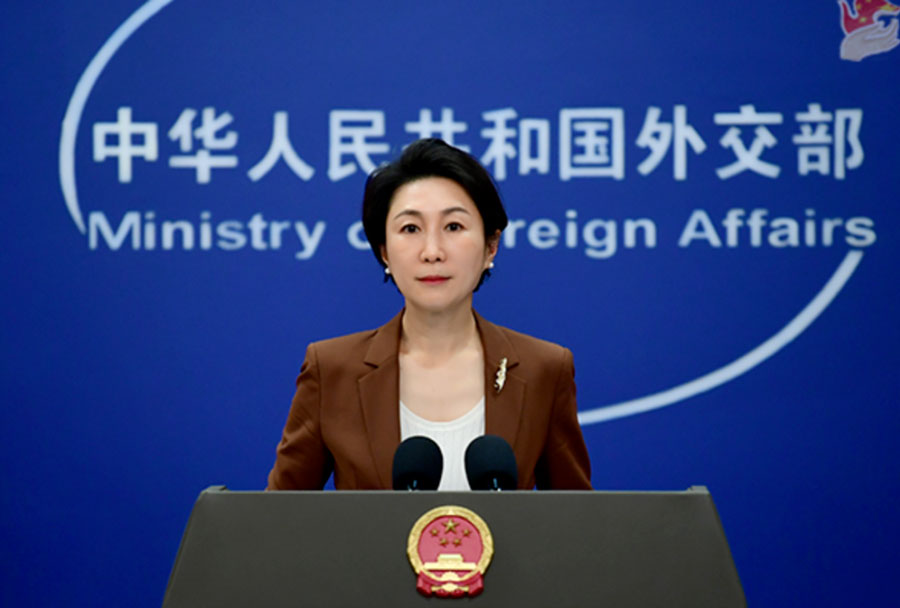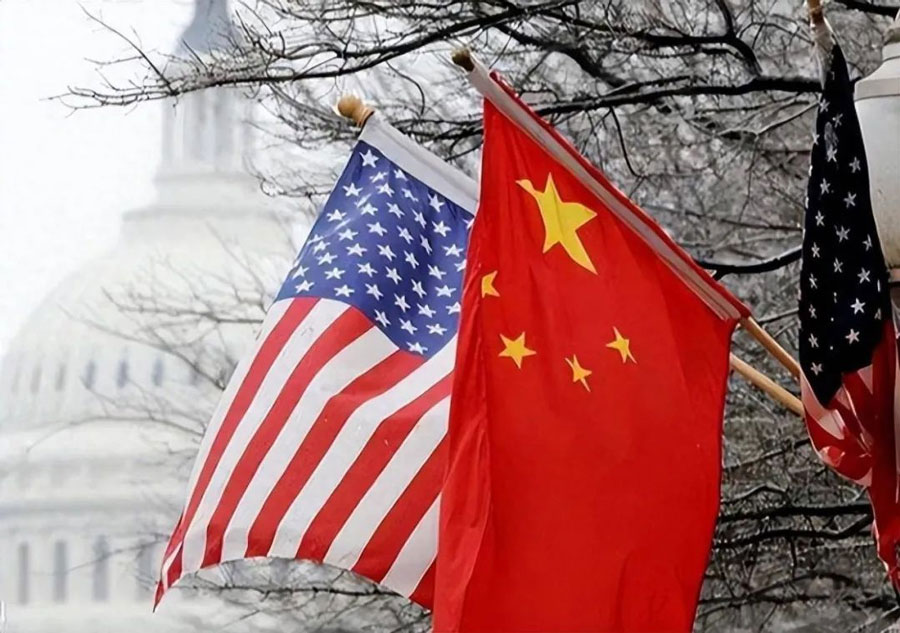

25% tariff on Chinese goods, Foreign Ministry responds
On January 22nd, Foreign Ministry spokesperson Mao Ning presided over a regular press conference. TASS reporter asked, what is China's comment on US President Trump's statement to impose a 25% tariff on Chinese exports to the United States as early as February 1st?
Mao Ning said, "We have repeatedly expressed China's position on this issue. We always believe that there is no winner in trade wars and tariff wars, and China has always been firm in safeguarding national interests
Trump threatens to impose 100% tariffs on BRICS countries, China expresses stance
A foreign media reporter asked about Trump's threat to impose 100% tariffs on BRICS countries. Mao Ning stated that as an important platform for cooperation between emerging markets and developing countries, BRICS advocates openness, inclusiveness, win-win cooperation, and does not engage in factional confrontation or target third parties. Our goal is to achieve common development and universal prosperity. China is willing to continue to deepen pragmatic cooperation in various fields with BRICS partners and make more contributions to the stable growth of the world economy.
Trump cannot wait to wave the "tariff stick" after taking office
On his first day in office, Trump once again issued a stern threat regarding tariffs when speaking to reporters at the White House. This highlights his long-standing strong desire to implement broader tariff measures. Trump has officially announced that he will impose a 25% tariff on goods imported from Canada and Mexico starting from February 1st, and has revealed that he will also consider imposing tariffs on China and the European Union in the future.
Trump pointed out that the European Union and other countries have a concerning trade surplus with the United States. He specifically mentioned, "The EU is very unfair to us, so they will be subject to tariffs. This is the only way to make things fair..." In addition, on January 21, Trump also stated that he is considering imposing tariffs on Canada and Mexico unless they can take effective measures to combat illegal immigration and trafficking of illegal drugs such as fentanyl across the US border.
Faced with Trump's tariff threat, Canadian Prime Minister Trudeau made a tough response at a special cabinet meeting held in Montreal, Quebec on January 21. Trudeau stated that if Trump imposes tariffs on Canada on February 1st, Canada will take "swift, powerful, and very strong" retaliatory measures. He made it clear that if necessary, Canada will impose retaliatory tariffs and tends to adopt the principle of one-to-one equivalent tariffs.
Meanwhile, on January 21st, Trump also claimed that the US government is discussing imposing a 10% tariff on goods imported from China starting from February 1st, citing that illegal drugs such as fentanyl are being transported from China to Mexico and Canada. Trump had threatened to impose tariffs on China as early as November 2024 and accused China of failing to fulfill its commitments on fentanyl smuggling. But the Chinese side firmly refuted this, emphasizing that China is one of the countries with the strictest and most thorough drug control policies in the world, and has carried out extensive drug control cooperation with the United States.
Mao Ning said, "We have repeatedly expressed China's position on this issue. We always believe that there is no winner in trade wars and tariff wars, and China has always been firm in safeguarding national interests

Trump threatens to impose 100% tariffs on BRICS countries, China expresses stance
A foreign media reporter asked about Trump's threat to impose 100% tariffs on BRICS countries. Mao Ning stated that as an important platform for cooperation between emerging markets and developing countries, BRICS advocates openness, inclusiveness, win-win cooperation, and does not engage in factional confrontation or target third parties. Our goal is to achieve common development and universal prosperity. China is willing to continue to deepen pragmatic cooperation in various fields with BRICS partners and make more contributions to the stable growth of the world economy.
Trump cannot wait to wave the "tariff stick" after taking office
On his first day in office, Trump once again issued a stern threat regarding tariffs when speaking to reporters at the White House. This highlights his long-standing strong desire to implement broader tariff measures. Trump has officially announced that he will impose a 25% tariff on goods imported from Canada and Mexico starting from February 1st, and has revealed that he will also consider imposing tariffs on China and the European Union in the future.
Trump pointed out that the European Union and other countries have a concerning trade surplus with the United States. He specifically mentioned, "The EU is very unfair to us, so they will be subject to tariffs. This is the only way to make things fair..." In addition, on January 21, Trump also stated that he is considering imposing tariffs on Canada and Mexico unless they can take effective measures to combat illegal immigration and trafficking of illegal drugs such as fentanyl across the US border.
Faced with Trump's tariff threat, Canadian Prime Minister Trudeau made a tough response at a special cabinet meeting held in Montreal, Quebec on January 21. Trudeau stated that if Trump imposes tariffs on Canada on February 1st, Canada will take "swift, powerful, and very strong" retaliatory measures. He made it clear that if necessary, Canada will impose retaliatory tariffs and tends to adopt the principle of one-to-one equivalent tariffs.

Meanwhile, on January 21st, Trump also claimed that the US government is discussing imposing a 10% tariff on goods imported from China starting from February 1st, citing that illegal drugs such as fentanyl are being transported from China to Mexico and Canada. Trump had threatened to impose tariffs on China as early as November 2024 and accused China of failing to fulfill its commitments on fentanyl smuggling. But the Chinese side firmly refuted this, emphasizing that China is one of the countries with the strictest and most thorough drug control policies in the world, and has carried out extensive drug control cooperation with the United States.







